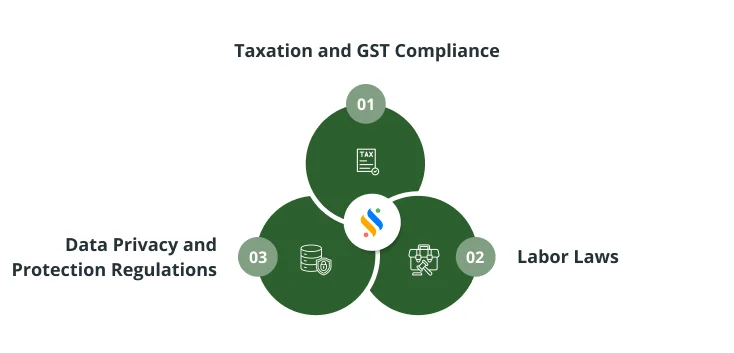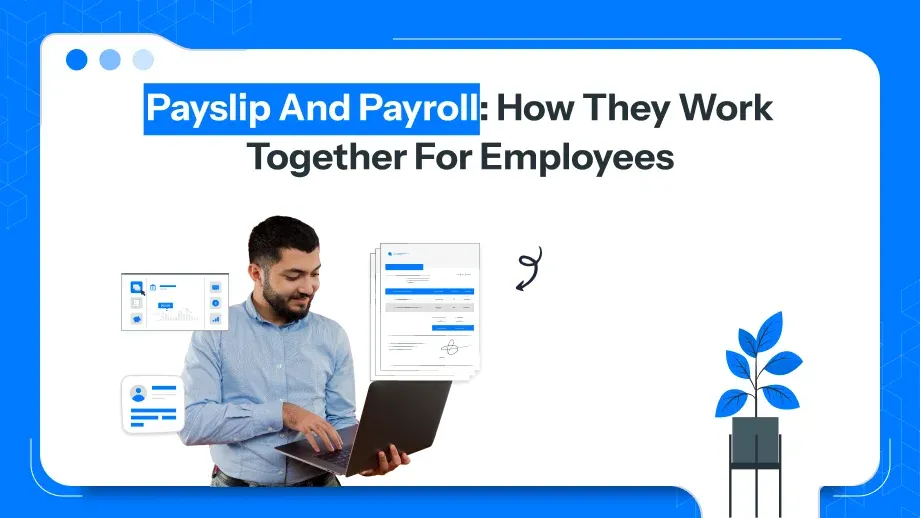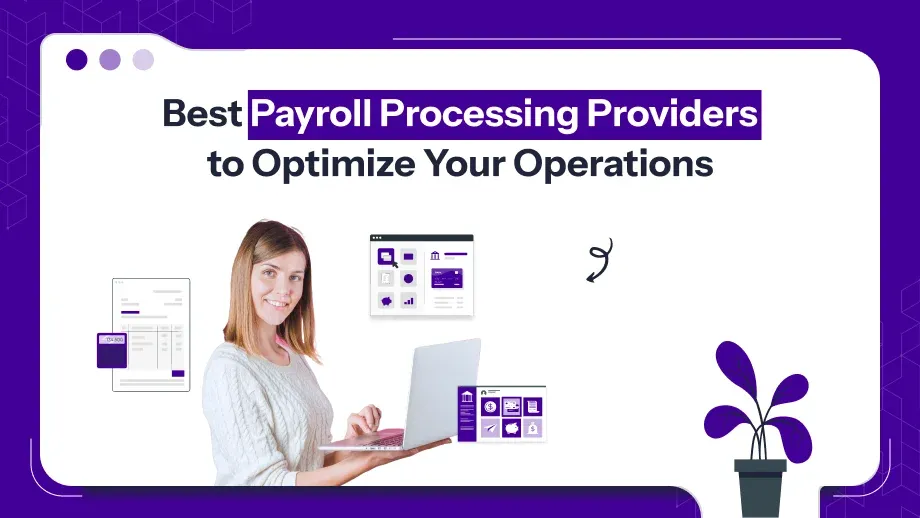Compliance for startups literally means to follow all the rules, laws, and regulations of the country. And this basically applies to all the businesses in the nation. This kind of feature always ensures that the company continues to operate legally and keeps avoiding penalties.
Grab a chance to avail 6 Months of Performance Module for FREE
Book a free demo session & learn more about it!
-
Will customized solution for your needs
-
Empowering users with user-friendly features
-
Driving success across diverse industries, everywhere.
Grab a chance to avail 6 Months of Performance Module for FREE
Book a free demo session & learn more about it!
Superworks
Modern HR Workplace
Your Partner in the entire Employee Life Cycle
From recruitment to retirement manage every stage of employee lifecycle with ease.


Seamless onboarding & offboarding
Automated compliance & payroll
Track performance & engagement
Why Is Compliance For Startups India So Crucial? Get Details Now!
- regulatory requirements
- 10 min read
- September 23, 2024
If you have a given look towards the modern trends of startups, then you must be aware of the consequences they used to face mostly- failure! And don’t just go with our words, rather go through the national reports where you will find that most of these startups [around 90%] get shut down soon after their launch!
And still in 2024, the most common reason behind this grave failure is either not knowing or not understanding the compliance for startups! People in this modern world keep repeating the same payroll tax mistakes again & again when they keep undermining the criticality of the compliance requirements repeatedly.
Compliance undoubtedly plays a critical role in the journey of any startup regardless of its product or services! This is especially much more relatable in India, a country where regulations span various sectors. For startups to grow and operate smoothly, they need to comply with legal compliance properly, because it’s not just good practice anymore, but also crucial for long-term success.
For that reason, in this blog, we will be exploring why compliance for startups in India is that crucial! And furthermore, we will dive into key areas startups need to focus on to stay ahead of regulatory challenges.
What is Compliance for Startups?
For Indian startups especially, compliance is a cornerstone that keeps their business engine running smoothly. Here, you keep your business in India operational within the legal framework set by the government, in which you do the tax filings as per the labor laws, or data protection regulations.
Moreover, compliance basically creates a foundation of trust, attracting investors, customers, and talent to your business. Our country’s startup ecosystem has witnessed exponential growth, and with this growth comes a more complex regulatory system that we need to understand very well!
Hence, startups must navigate this environment quite effectively to avoid all the legal hurdles that can stifle their progress. So, let’s start understanding the key areas of compliance with legal metrics in detail.
Key Compliance Areas for Startups
According to the experts, for a startup in India, there are many legal and regulatory requirements that need to be considered! Because your startup just has to go through various compliance requirements, from taxation to corporate governance.
And on the nature of the intellectual property of the business in India, these regulations are just designed to
- Protect stakeholders,
- Maintain market integrity, and
- Ensure ethical business operations.
Hence, here are some key areas that startups must focus on:
1. Taxation and GST Compliance
One of the biggest compliance challenges that all startups can feel terribly is taxation, especially Goods and Services Tax (GST). GST filings that we all know are mandatory and the right thing to do, and must be completed regularly to avoid fines or penalties.
Almost every operation in the legal company in India including the department for promotion of industry requires funds & finances! Hence, for startups in the early stages compliance is highly crucial, understanding these financial obligations can help in maintaining transparency with stakeholders and avoiding legal consequences.
2. Labor Laws
Employee welfare is an undeniable priority for the Indian government, and even startups are not exempt from the various labor laws. Startups must avoid any kind of non-compliance and should comply with labor regulations, and that includes;
These labor laws aim to protect the workforce and ensure that businesses are treating employees fairly. Startups must comply with regulatory requirements and need to ensure that such legal startups India, follow these guidelines regarding compliance for startups to avoid penalties and create a positive work culture.
3. Data Privacy and Protection Regulations
In today’s digital era, data protection is a growing concern for legal services for startup companies need to obtain! And on that note, in order to operate a legal startup, India’s regulatory framework, such as the Data Protection Bill ensures businesses protect sensitive customer data.
Here, until now, we have quite sufficient details regarding the startup and its direct relation to compliance for growth! Hence, furthermore, we want you to know some of the best legal tech companies in India that are ensuring the path of compliance and regulatory requirements is easy, specifically for startups!
Top Legal Tech Startups in India
In regards to compliance for startups, here we will be sharing 7 great platforms that offer a range of services including;
- Automated legal documentation,
- Tax compliance,
- Intellectual property management, and
- Contract automation.
So, from here onwards let’s start having an in-depth look at some of the top legal tech startups in India:
1. VakilSearch
You may have heard the name VakilSearch, because it’s quite a prominent legal tech platform in India! It provides comprehensive services that are important for startups, from legal, to tax and compliance solutions.
This legaltech platform is specifically designed to support startups with ultimate services such as company registration, trademark filing, and compliance management. It acts as an ultimate one-stop shop for all kinds of compliance laws and needs, ensuring businesses meet their legal obligations without the hassle of manual processes.
Key Features:
- Company registration and intellectual property services
- Contract drafting and review
- Automated compliance tracking and reminders for regulatory filings
2. LawRato
LawRato is a startup that serves as a legal advice marketplace and connects startups with verified legal professionals. A legal professional who specializes in various fields such as corporate law, intellectual property, and tax compliance under the law of the nation. Startups can easily use such platform to consult legal experts for one-off issues or establish long-term relationships for continuous support.
Key Features:
- Marketplace for legal services across diverse domains
- Legal consultation tailored to specific business needs
- Cost-effective, pay-as-you-go model for startups
3. SpotDraft
Contract management is not an easy task for startups, especially when they begin to scale, and they also are aware of it. Hence, the SpotDraft comes into the scene, because it addresses this challenge by offering a contract automation platform.
It’s a one-of-a-kind platform that streamlines the process of creating, managing, and signing legal documents. Furthermore, SpotDraft allows businesses to automate their contracts, reducing manual errors and ensuring compliance for startups as per the legal standards.
Key Features:
- Automated contract creation and management
- E-signature capabilities for seamless document execution
- Compliance tracking to ensure all legal documents meet required standards
4. Legistify
When we talk about compliance for startups Legistify specializes in legal case management and compliance tracking! Because it offers startups a well-structured approach to handling their respective legal matters.
It’s a platform that allows businesses to store, track, and manage all legal cases and legal compliance documents in one place. And by that, it ensures that deadlines and legal obligations are never missed.
Key Features:
- Centralized case and document management system
- Compliance tracking with automated reminders
- Customizable workflows to meet specific legal and regulatory needs
5. MikeLegal
Intellectual property is a crucial asset for many legal tech India, and managing IP compliance can be a challenge for anyone in general. Hence, MikeLegal comes into the scene, which with an AI-powered platform easily helps businesses to manage their intellectual property portfolios, ensuring they remain compliant with the latest legal standards.
Furthermore, this platform uses AI to track IP filings, detect potential infringements, and consistently make sure that startups’ IP assets are well-protected. It’s quite an ideal platform for tech-driven startups with valuable IP assets like patents, trademarks, and copyrights.
Key Features:
- AI-powered IP management and infringement detection
- Real-time updates on IP filings and compliance status
- Automated alerts for important filing deadlines and renewals
Reduce your compliance workload by 70%with Super Payroll!
Get the best payroll software for your startup, right away!
6. Compliance.ai
Startups that are drowned in the stress of compliance management can connect with compliance.ai, as it’s a highly advanced platform! Moving forth, it focuses on helping startups navigate the ever-changing regulatory environment, and through its AI-driven tools, it allows startups to;
- Automate compliance tracking,
- Do the real-time reporting,
- And to make data protection measures.
Furthermore, it also offers a range of solutions that make regulatory management way simpler than you think, and that is how it ensures that startups stay ahead of legal requirements.
Key Features:
- AI-powered compliance management and automation
- Real-time updates on regulatory changes
- Compliance analytics and risk assessments
How to choose the right compliance for your startups
1. Recognize the regulations that apply to your industry.
There are specific compliance standards for different sectors. Whether it’s labor rules, banking restrictions, or data protection legislation, start by learning about the regulations that apply to your industry.
2. Evaluate the Company’s Growth and Size Plans
Small startups and businesses that are expanding quickly have different compliance for startups demands. Choosing a compliance framework that can expand with your firm requires careful consideration of its size and development trajectory.
3. Pay Attention to Data Security
Data security is essential for all new businesses. If you manage client data, make sure you are in compliance with international regulations such as the California Consumer Privacy Act (CCPA) and the General Data Protection Regulation (GDPR).
4. Select Compliance Solutions Based in the Cloud
Cloud-based software is a staple of many startups. To prevent security breaches, make sure the platform conforms with industry standards like ISO, SOC, or HIPAA certifications. Using HIPAA Compliance software ensures sensitive data stays protected.
5. Spend Money on Legal Advice
You can look up the fundamentals of compliance, but to be sure you’re covering everything, especially in highly regulated sectors, it’s best to have legal advice.
6. Monitor Employee Adherence to Policies
Make that all employment laws—including those pertaining to contracts, taxes, and working conditions—are followed as you assemble your staff. Labor law compliance may be managed more easily with the use of an HRMS system such as Superworks.
7. Keep an eye on Compliance Frequently
Ensuring compliance is a continuous endeavor. As your business expands, regular audits and keeping up with regulatory changes will help you avoid non-compliance fines.
Selecting the appropriate compliance for your company necessitates a combination of knowing the rules, making good use of technology, and consulting professionals.
Conclusion: Future Trends in Compliance for Startups
So, these were the startups that are revolutionizing how compliance is managed with payroll software, and keep instilling the easiness and cost-effectiveness for businesses to stay compliant with Indian regulations. And on this note, we have one more special software, a modern solution that’s already doing magic with hundreds and thousands of companies throughout the country- Superworks!
This software as per the experts is one of the best payroll software in India because the ever-updating compliance for startups services it offers are just more than amazing! With Superworks, you don’t have to stress about the ever-changing laws and everything because this software will keep doing the payroll as the latest laws only!
So, why not connect with our expert and learn more about the brilliant HR & payroll software that can help you make your compliance for startups more manageable? Connect NOW!
FAQs
What is compliance in startups?
What are the 5 steps to compliance?
Here we have listed all those 5 crucial steps that you should keep in mind as soon as you start managing compliance with the right platform.
- Identify Regulations: First, you should know the laws that apply to your business.
- Create Policies: Set up basic yet firm rules to follow those laws.
- Train Employees: Keep your team aware and educated about these policies.
- Monitor: Regularly check that everyone follows the rules because it's highly crucial.
- Report and Improve: Fix any issues and make improvements.
What are the three types of compliance?
Regulatory Compliance: Following laws set by the government.
Internal Compliance: Following the company’s own policies.
Contractual Compliance: Following terms agreed upon in contracts.
What are the legal requirements for a startup?
Register the Business: Officially form the company.
Obtain Licenses: Get any necessary business permits.
Tax Registration: Register for taxes like GST or VAT.
Employment Laws: Follow labor and payroll rules.
Data Protection: Make sure that the security of customer data.
What is the best legal structure for Startup?
The best legal structure for most startups is a Private Limited Company. It limits personal liability and makes raising funds easier. Other options include Sole Proprietorship or LLP (Limited Liability Partnership) depending on the business needs.












